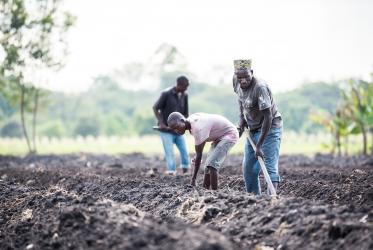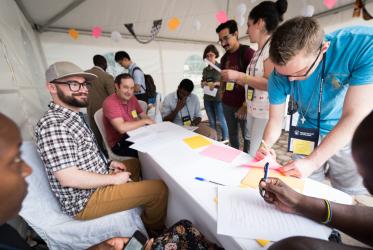Displaying 1 - 20 of 34
Workshop on HIV stigma, treatment adherence opens in Tanzania
29 September 2021
Moravian Church in Tanzania launches Thursdays in Black
10 September 2019
WCC condemns massacre of farmers in Philippines
12 April 2019
All pilgrim routes lead to COP24
11 December 2018
#WCC70: A prayer about health and healing
20 July 2018
‘Sokoni’ transforms marketplace into mission
13 March 2018
GETI students plant trees, in service for greener future
07 March 2018
“Overcoming economic injustice” vision of WCC’s Athena Peralta
23 February 2017
New videos help congregations hasten HIV response
20 October 2016














